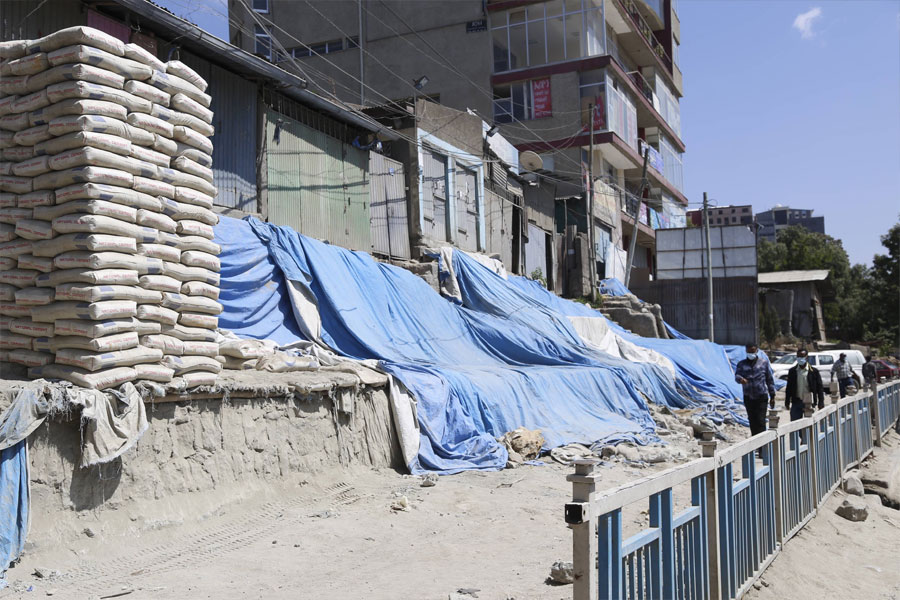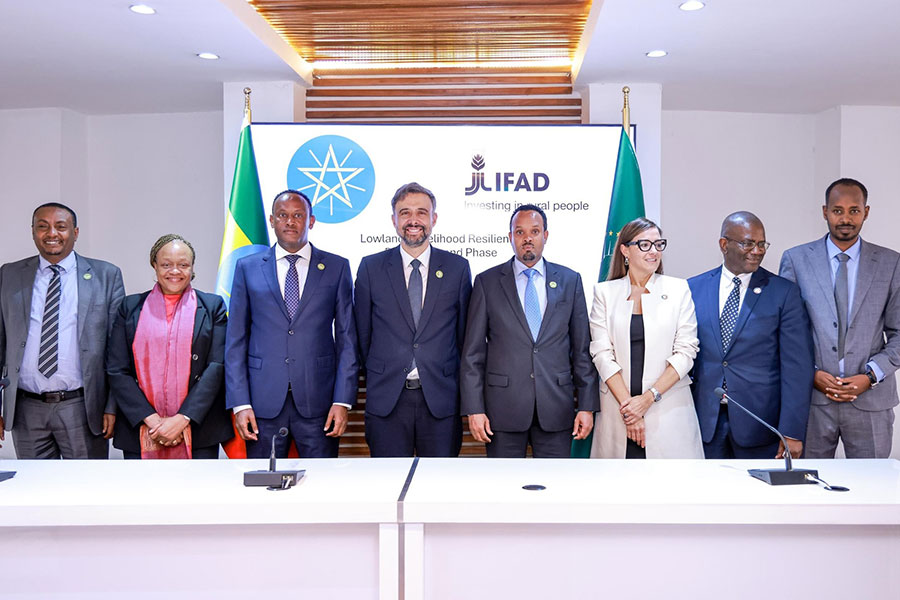
Fortune News | Jul 24,2021
Construction authorities have unveiled a price adjustment implementation manual for state-owned construction projects to address price escalation issues and execution gaps between contracting parties. Prepared by the Ethiopian Construction Authority, the manual calculates strategies to resolve longstanding problems concerning prices that have led to disagreements and delays in construction projects.
Mesfin Negewo, head of the Authority, said the guideline aims to lower the frequency of adjustment periods and disagreements that arise during projects. He said the absence of standardised manuals has created an unequal footing, causing delays and leading to grinding halts in some cases.
"It'll bring security to contracting parties and guarantee continuation of projects," he said.
According to Mesfin, standardising the price adjustments is crucial, especially as construction material costs have risen significantly. The manual delineates costs as adjustable and non-adjustable, specifying that essential materials will undergo adjustments based on quantity, quality, base price, and contract amount.
Non-adjustable costs, which include overhead and labour, will be covered by the contractor by at least 35pc while the manual ensures that adjustable and non-adjustable portions are balanced to support sustainable price adjustments. Mesfin pointed out that disparities between these portions have caused project delays.
The manual applies to both existing and new projects, based on their contract terms. Currently, there are close to 250 federal projects managed by the Ethiopian Construction Authority (ECA).
Ethiopia's construction sector has been growing for nearly two decades, contributing a quarter of the GDP and relying heavily on imports for inputs. However, double-digit inflation and austere monetary policies have burdened the industry.
Contractors have struggled to complete projects due to price variations and security concerns. The 2,600 members lobby group Ethiopian Contractors Association has been advocating for updated price adjustment standards. Girma Habtemariam, head of the Association, is particularly concerned about road projects, where policy setbacks and material import difficulties exacerbate issues.
"There is a long list of problems in the industry," he noted.
Girma is doubtful about the manual's sustainability, given the rapid escalation of construction material costs. He said timely policy and law adjustments are important to keep pace with price changes.
"We can't rely on one manual for a long time," he said.
With less budget on capital expenditures, federal projects have decreased, leaving many contractors without jobs or budgets to run their companies.
"It's been a tough time for the construction industry," Girma said while highlighting payment delays from federal agencies, which have hindered contractors' ability to complete projects.
Alemayehu Gebreiel, operational manager at Bright Construction PLC, recalled previous price adjustment attempts that failed to address contractors' needs amidst rising inflation and stressed that while construction companies face numerous challenges, federal agencies also struggle. He noted that delayed client adjustment payments and unilateral decisions have frustrated contractors working on government-led projects.
"This is one of the major issues for most contractors," he told Fortune.
Irrigation projects managed by the Irrigation & Lowlands Ministry have also suffered due to contractual issues. According to Yared Mulat, head of irrigation research at the Ministry, time-consuming irrigation projects face major cost escalations, causing delays and undermining project completion.
The Ministry's nine-month review revealed minimal progress on 19 irrigation projects, with only two reaching 40pc completion.
"Many project delays happened because of this," Yared said.
Yared applauded the new manual for providing a sustainable solution and ensuring equal footing for both the Ministry and contractors. He noted that the absence of standardised manuals led to prolonged negotiations, further exacerbating delays. Budget constraints also hindered the Ministry's ability to finance price increments.
Experts like Abebe Dinku (Prof), have pointed out that price escalation is a major cause of federal project failures. He emphasised that thorough contract examinations and timely evaluations of adjustments are essential.
"It has been a reason for several project failures," Abebe told Fortune.
Abebe suggested that policymakers create laws considering both parties' interests to prevent one-sided benefits. He also called for a practical and considerate approach to contract terms, ensuring fairness and sustainability in price adjustments.
PUBLISHED ON
Jul 13,2024 [ VOL
25 , NO
1263]

Fortune News | Jul 24,2021

Radar | Jun 30,2024

Viewpoints | Aug 30,2025

Radar | Aug 17,2025

In-Picture | Jul 14,2025

Fortune News | Nov 17, 2024

Life Matters | Jun 21,2025

View From Arada | Oct 11,2025

Fortune News | Dec 10,2018

Radar | Aug 07,2025

Dec 22 , 2024 . By TIZITA SHEWAFERAW
Charged with transforming colossal state-owned enterprises into modern and competitiv...

Aug 18 , 2024 . By AKSAH ITALO
Although predictable Yonas Zerihun's job in the ride-hailing service is not immune to...

Jul 28 , 2024 . By TIZITA SHEWAFERAW
Unhabitual, perhaps too many, Samuel Gebreyohannes, 38, used to occasionally enjoy a couple of beers at breakfast. However, he recently swit...

Jul 13 , 2024 . By AKSAH ITALO
Investors who rely on tractors, trucks, and field vehicles for commuting, transporting commodities, and f...

Oct 18 , 2025
The political establishment, notably the ruling party and its top brass, has become p...

Oct 11 , 2025
Ladislas Farago, a roving Associated Press (AP) correspondent, arrived in Ethiopia in...

Oct 4 , 2025
Eyob Tekalegn (PhD) had been in the Governor's chair for only weeks when, on Septembe...

Sep 27 , 2025
Four years into an experiment with “shock therapy” in education, the national moo...